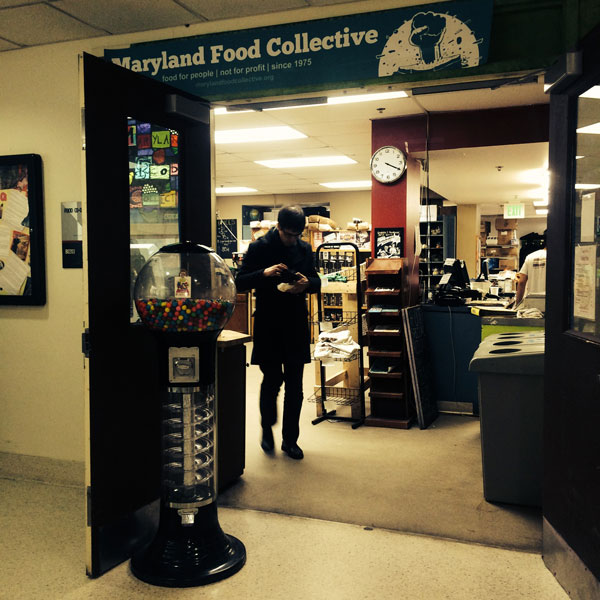
April 26, 2019; The Diamondback (College Park, Maryland)
In colleges across the country, social enterprise has become increasingly popular. Classy recently profiled programs at nearly two-dozen schools, including Penn, Duke, Yale, Stanford, Berkeley, Northwestern, Harvard, Michigan, and Cornell. Yet actual student-run businesses on campuses remain rare. And, barring a last-minute twist, that number could fall by one, as the 43-year-old Maryland Food Co-op at the University of Maryland, College Park has been told to shutter its doors for good on May 31st, reports Sarah D’Souza in the campus paper, The Diamondback.
Not every student business is recognized as historically significant by the Smithsonian. But then again, the Maryland Food Co-op has not just been any business. As the exhibit at the National Museum of American History explains:
The Maryland Food Co-op was founded in 1975 in the midst of unrest. Students at the University of Maryland, College Park, had been advocating for changes to the university’s food system for several years, citing poor food quality, customer service, and questionable sanitation. Their agitation increased when they learned in 1974 that food facilities in the Stamp Student Union might close for failing to meet county food sanitation standards. In August 1975 student Matt Mayer submitted a proposal to the Student Government Association to organize the Maryland Food Collective, which became known as the Co-op. Before Mayer’s proposal for the Co-op was approved, some students are believed to have taken action by making sandwiches at home and selling them on the campus as part of a “Guerilla sandwich line.”
As the co-op’s longevity attests, for years the business operated profitably. But that has not been the case of late. When the co-op was at its peak, it relied not just on students, but on staff who had graduated and lived in the community to keep operations in order. In recent years, an overreliance on students has hurt operations. As D’Souza, citing co-op member and graduate student Michael Brennan, explains, “The Co-op’s ills result from failures to pay utilities, rent, state taxes, and operational costs to vendors for the products it purchases…Some former employees had accumulated a wealth of institutional knowledge on how to run the Co-op, and as they’ve graduated over the past five years, it affected the business’ ability to tackle the debt.”
Sign up for our free newsletters
Subscribe to NPQ's newsletters to have our top stories delivered directly to your inbox.
By signing up, you agree to our privacy policy and terms of use, and to receive messages from NPQ and our partners.
The co-op, for its part, has—perhaps belatedly—tried to remedy this situation. It raised $8,500 to pay back taxes owed to the state, for instance. But the co-op still owes $40,000 to the school’s Stamp Student Union, which has refused to extend credit any further, rejecting a co-op proposal to pay off the debt through monthly $2,500 installment payments.
Stamp Student Union director Marsha Guenzler-Stevens claims her hand is forced. “If ever there was a group of people working to create systems to try to make it effective, it was this group,” Guenzler-Stevens tells D’Souza, “but the reality is that the financial model is seriously flawed.”
Perhaps. But co-op members have proposed changes that, if implemented, could help. One is to recapitalize by adding a consumer membership category. The school has nearly 30,000 undergraduate students; if 2,000 of them purchase $20 shares, that would retire the $40,000 debt. (And, if more money were raised, that could finance reinvestment in the business). Of course, new capital alone won’t fix operational problems. For that, “workers are reaching out for support to the business school, the Do Good Institute, and other departments throughout the university,” D’Souza reports. They’ve also enlisted the support of local state senator Jim Rosapepe, who tells D’Souza that, “The university has put a lot of emphasis in the past couple of decades on student entrepreneurship, and this is student entrepreneurship on steroids.”
If the co-op does survive, it won’t be the first time it has come back from the brink. While co-op members have much to learn, the school might learn a thing or two as well. After all, the co-op could help social enterprise students learn real-world skills, if the co-op and the school’s social enterprise programs were linked. Let’s hope the university recognizes the asset it has before it is gone.—Steve Dubb















